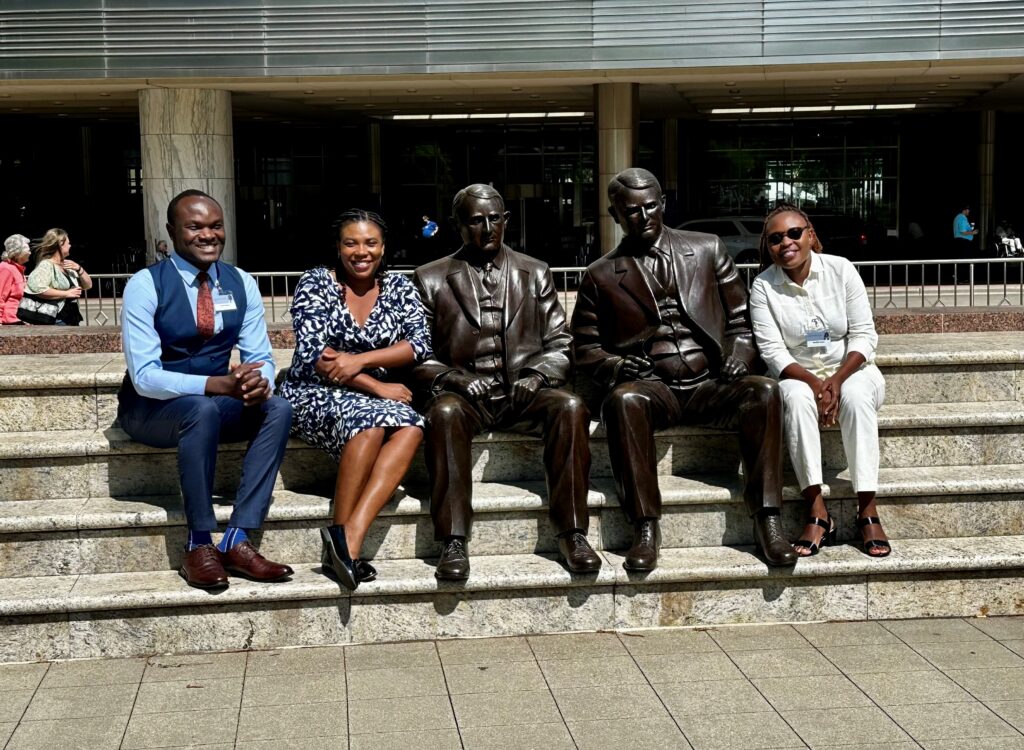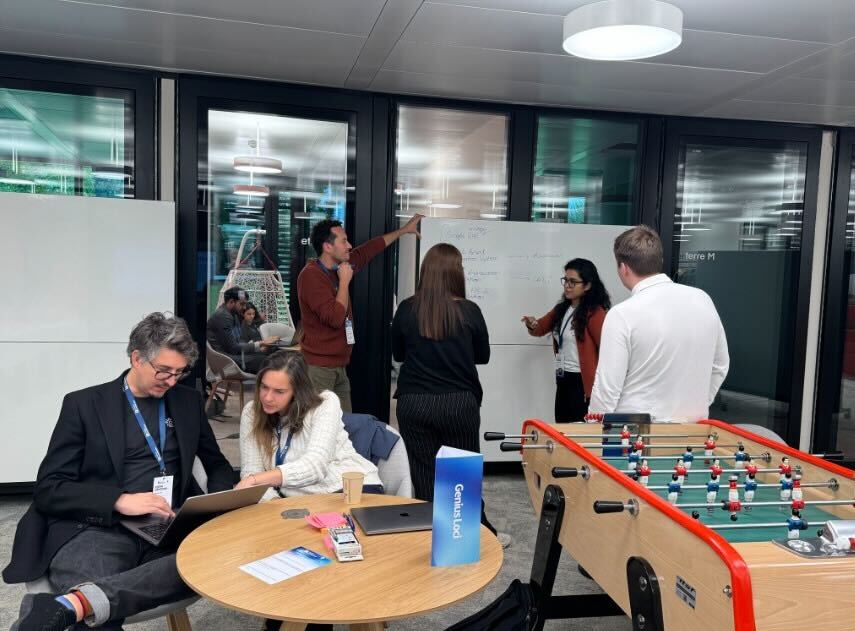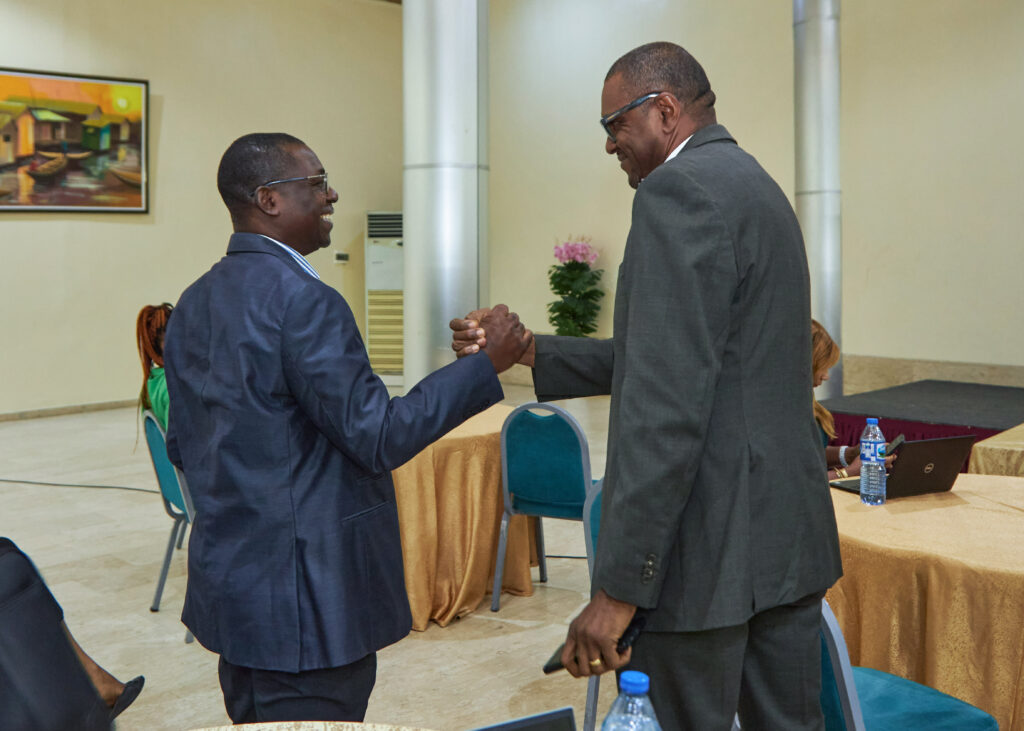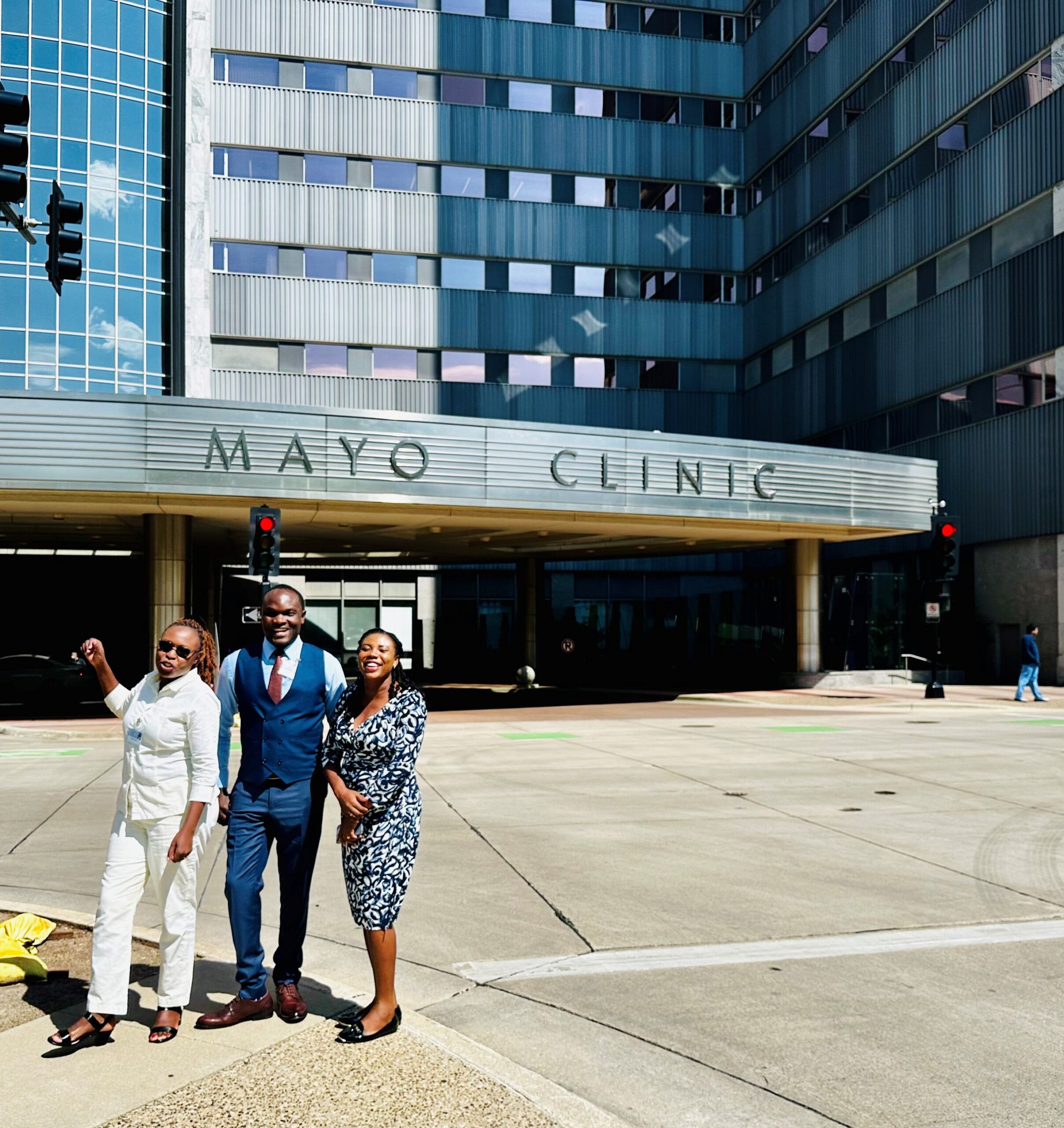
Emelia Osei Boakye, an oncology nurse specialist at Komfo Anokye Teaching Hospital (KATH) in Kumasi, Ghana, is one of only around 20 oncology nurses in the entire country. With cancer cases on the rise in Ghana—over 27,000 new diagnoses in 2022—her role is critical. Emelia and her team of six nurses attend to hundreds of patients daily. However, there are times when they are unable to provide the needed care due to a lack of resources or equipment breakdowns, delaying essential treatment.
In May, Emelia was selected alongside three other nurses from Ghana and Kenya to participate in a two-week observational training programme at Mayo Clinic, a partner of City Cancer Challenge (C/Can)’s Technical Cooperation programme.
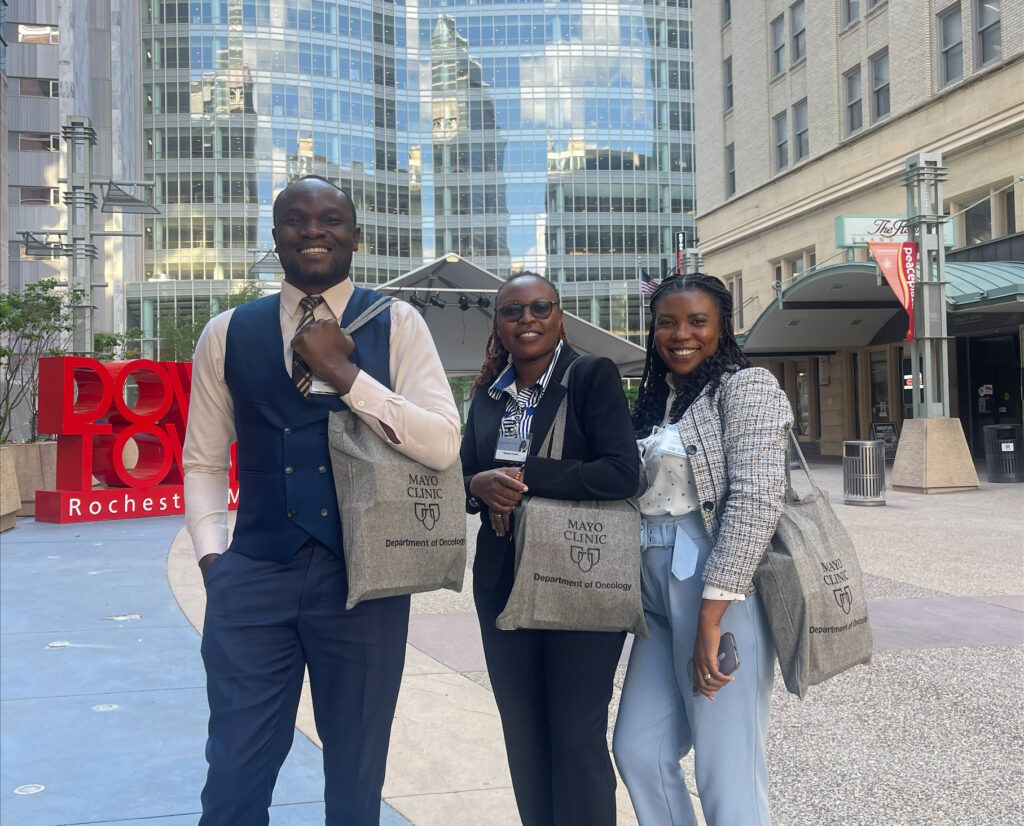
C/Can’s Technical Cooperation programme aims to provide practical work experience and onsite training at leading cancer institutions globally, enhancing the skills of professionals like Emelia,
said Thet Ko Aung, Senior Manager, Technical Cooperation, at C/Can.
Since the programme started in 2020, a total of 26 cancer care professionals have received C/Can funding and support to undertake training.
Designed for meaningful change
Katie Kemper, Executive Director of Global Bridges Healthcare Alliance, a C/Can technical partner, emphasised the importance of selecting participants with the potential of making a significant difference.
These selections are not accidental. The individuals selected have the skills, commitment, and passion to learn and implement improvement within their home institution. Emelia exemplifies the kind of leader we seek to support.
Given the resource constraints faced by institutions like KATH, securing time away from clinical practice can be challenging. That’s why careful consideration is given to training design to maximise its value.
We engage in comprehensive preparation before the visit. Through a series of virtual meetings and needs assessments, we align the training with the specific goals and clinical needs of participants. This approach, together with our first-hand experience of delivering care in different resource settings, ensures that the training is relevant and impactful,
said Dr. Kenneth Merrell, an oncologist in the department of Radiation Oncology at Mayo Clinic.
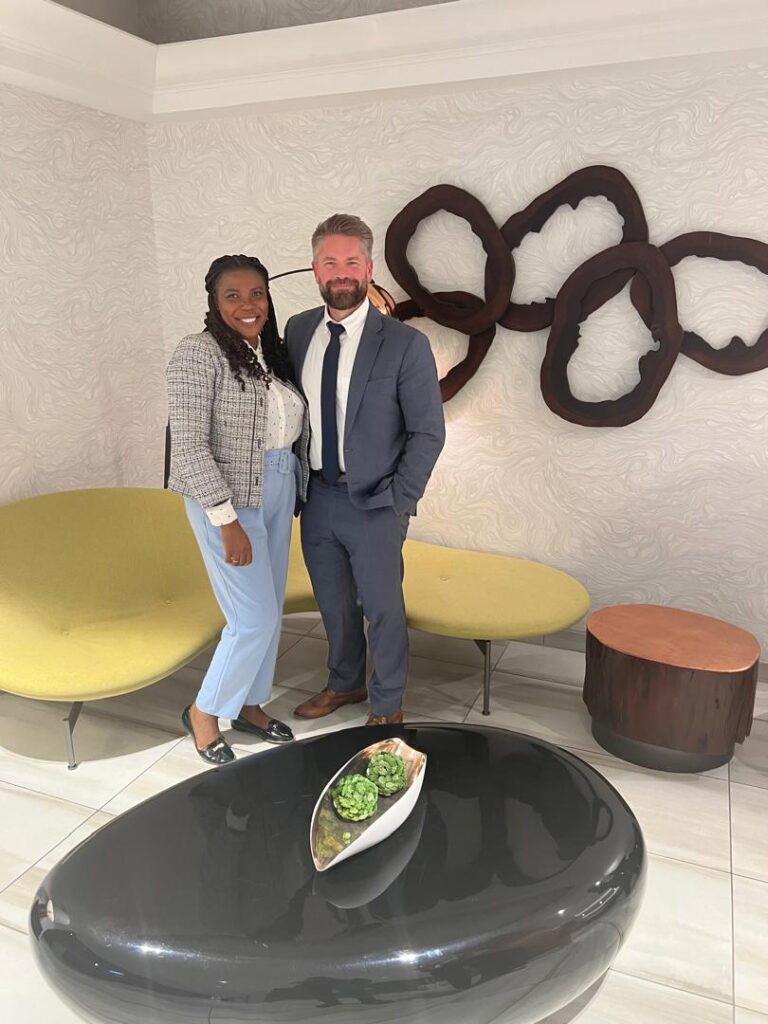
Insights gained at Mayo Clinic
Emelia describes her experience at Mayo Clinic as both “awesome” and “eye-opening”. For many visiting clinicians, Mayo Clinic offers a firsthand look at procedures and techniques that they’d only read about in textbooks but haven’t had the opportunity to witness or experience in clinical practice.
When they’re here, they’re actually in clinic for that full eight-hour day, working hand in hand with the person that they’re shadowing. There’s a really easy flow of conversation, making it easy to ask questions. The visiting nurses also get to go into the rooms with the patients, which is difficult to replicate through remote learning,
explained Rachael Guenzel, a Mayo Clinic nurse practitioner who Emelia shadowed during her visit.
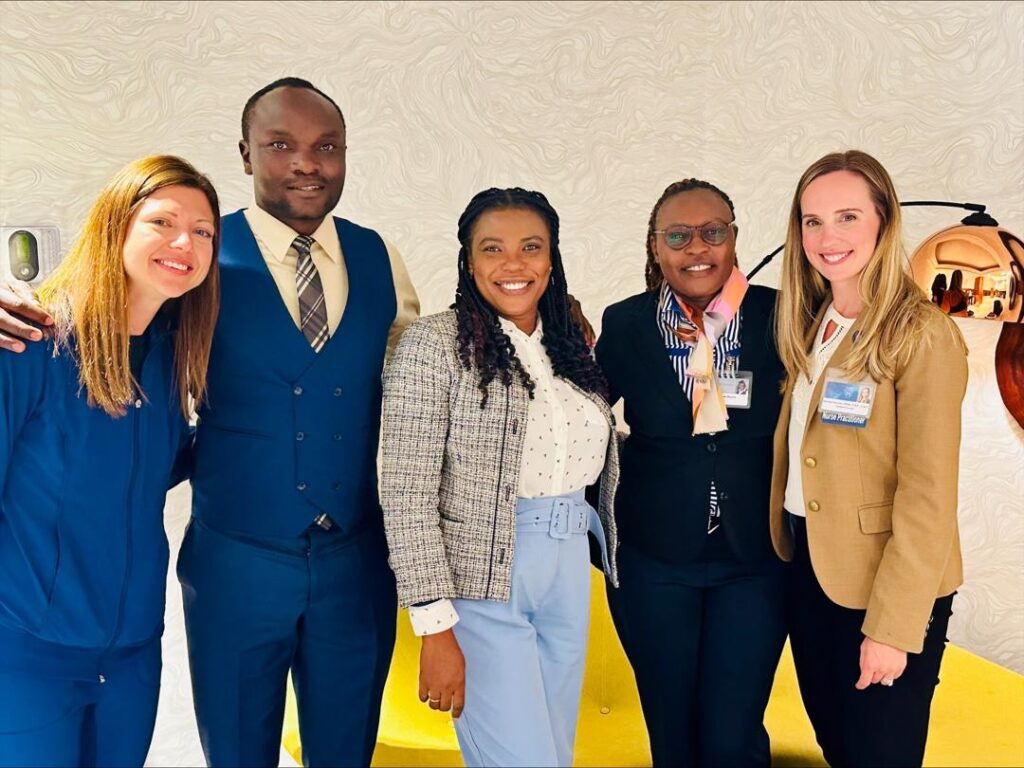
Implementing change back home
Upon returning to KATH, Emelia discussed her new insights with her supervisor, who supported a gradual implementation of the changes.
We identified what could be adapted to our context and decided to implement improvements step-by-step. We may not replicate Mayo Clinic exactly, but we can still make advancements that make a difference to our patients.
Emelia explained.
One of Emelia’s major initiatives was introducing a psychosocial model to support the psychological well-being of patients. Without access to a clinical psychologist, Emelia has taken on the role of providing counseling, leveraging her training and experiences from Mayo Clinic and other previous training.
She also pioneered the establishment of a sexual health clinic, which she observed at Mayo Clinic, to address a critical yet often taboo aspect of cancer care in Ghana, focusing on issues such as body changes, intimacy, and other sexual health issues. Additionally, Emelia adopted non-pharmacological pain management techniques, such as acupressure, learned during her training at Mayo Clinic.
One thing I’ve realised is that for every change that you want to implement, you have to involve the stakeholders, from the department head to the team of nurses and to the patients themselves.
Fostering Knowledge, Confidence, and Community
The training in Mayo Clinic will have a multiplicative effect. Emelia is committed to improving her team’s knowledge. Through sharing materials from Mayo Clinic and organising bi-weekly meetings to discuss emerging practices, Emelia is creating a culture of learning and growth. Her experience has also boosted Emelia’s confidence in her role.
The teamwork at Mayo Clinic showed me that nurses can be frontline caregivers, making key decisions in collaboration with clinicians. This has reinforced my belief in the value of our contributions to patient care.
The benefits extend beyond technical knowledge, fostering valuable connections and learning between countries. The programme opens opportunities for visiting professionals to expand their network and create communities of practice among visiting professionals, as another nurse noted,
I will be able to initiate contact between specialists leading cancer care at my institution and Mayo Clinic for future collaboration.
Looking Ahead
Emelia’s experience at the Mayo Clinic demonstrates the power of shared knowledge.
Our efforts aim to indirectly benefit many cancer patients who can’t travel to Mayo Clinic. By sharing our resources and expertise, we hope to make a broader impact and give back to the global community,
said Dr. Merell.
Emelia’s experience has enriched her professional career and is already sparking a ripple effect of positive change for her team, KATH, and patients.
At the end of the day, when we get there one day, we will also say that we started from somewhere. And I know with the help of C/Can and Global Bridges, and organisations like Mayo Clinic, we’ll get there.
